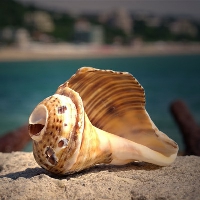1. Keep in mind, work hard and live up to the times
2. Remember the dead and salute the heroes! Go all the way!
3. The international medical community was shocked by the total surgical success rate of 91.2%
4. The ancient lighthouse is the backbone of the country that remains forever. Our model
5. The willow leaves are gone, the great doctor has fallen, the whole country is grieved, and the farewell is unforgettable
6. Willow leaf master, great doctor, unparalleled national scholar, and unforgettable farewell
7. The backbone of our country is our model. Never forget the original intention, and pass it on from generation to generation.
8. Take care of each other with all sincerity, and the great doctor is diligent and honest, and can help people's lives. Salute! Farewell
9. Maybe this is not the falling of stars, but returning to the sea of stars and overlooking the world
10. Standing by faith, inheriting the legacy of our country; Live with sincerity and glorify Chinese virtue.
11. In, Wu Mengchao and his future wife, Wu Peiyu, were both admitted to Tongji Medical College.
12. Salute! Write the first name on the first line of the first page of surgery! Good day, old Wu!
13. On September 22, Wu Mengchao died in Shanghai at 13:02 on the same day at the age of 99.
14. From to 1958, Wu Mengchao had been with Qiu Fazu from ward rounds and patient examinations to scientific research and surgery.
15. At that time, China's surgical magnate Qiu Fazu had just become famous in Shanghai. He became Wu Mengchao's idol at the age of 21.
16. Serve and contribute to the people. You are really using your life to serve and contribute to the people, doctors and patients! Old Wu, please
17. Wu Mengchao did not expect that he lost the chance to stay with Qiu Fazu because of his height of 1.62 meters.
18. In 1997, Wu Mengchao, 97 years old, retired. Because of holding the scalpel for a long time, the joints of his right index finger and ring finger were deformed.
19. Taking advantage of the good opportunity of the rectification of the Military Medical College, Wu Mengchao applied to the hospital party committee for the establishment of an independent hepatobiliary surgery, which was approved, realizing his first leap in hepatobiliary career.
20. Wu Mengchao once said, "A good doctor should look at the disease in his eyes and think of the patient in his heart. I want to be such a good doctor." He proved himself by practice.
21. In view of Wu Mengchao's innovation and achievements in a series of basic theories and clinical practice, Shanghai Science and Education Film Studio also shot a color documentary "March to Liver Surgery" for him.
Wu Mengchao was born in Minqing County, Fujian Province in. When I was 5 years old, I went to Malaysia with my family. When I was 8 years old, I followed my father to the rubber garden to practice cutting rubber in the middle of the night and studied at Guanghua School run by overseas Chinese.
23. When he graduated, Wu Mengchao wanted to stay in school for surgery, but the Dean of Academic Affairs rejected him because he was too short. At this time, Wu Mengchao was recruited by the Affiliated Hospital of the Second Military Medical University.
24. After establishing prestige in the academic community, Wu Mengchao took the lead in recruiting graduate students, and has cultivated many high-end talents with academic expertise for decades. During this period, he also successively proposed a series of strategies for surgical treatment of liver cancer:
In, Wu Mengchao translated and published the first monograph on liver surgery in China - Introduction to Liver Surgery. In the same year, a "three person research team" led by Wu Mengchao aimed at conquering liver surgery was formed
26. During the Cultural Revolution, Wu Mengchao was branded as a "reactionary academic authority" because he was a returned overseas Chinese. He moved from Shanghai to Xi'an with the Second Military Medical University, learned Chinese medicine by himself, and became a barefoot doctor with "a silver needle and a handful of grass".
In, during the tense period of the Anti Japanese War in China, Wu Mengchao, 18, returned to China to participate in the anti Japanese activities. Later, he was unable to go to Yan'an due to the war, so he had to stay in Kunming to study. He was determined to study in the middle school attached to Tongji University in the suburb of Kunming in the same year by "studying to save the country".
In, Wu Mengchao successfully removed liver cancer for a middle-aged female patient, becoming the first successful liver operation in the First Affiliated Hospital of the Second Military Medical University (Shanghai Changhai Hospital). In the same year, he invented the "intermittent portal occlusion and hepatectomy under normal temperature"
In, Qiu Fazu moved to Wuhan with Tongji Medical College. In 1954, the Second Military Medical University hired Qiu Fazu as a part-time professor. Wu Mengchao finally had a chance to follow the teacher. He always paid attention to every move of the teacher. His diligence soon attracted Qiu Fazu's attention.
30. After numerous failures, Wu Mengchao and his team made a cast specimen of the beautiful coral like liver duct. On the basis of knowing the direction and distribution of liver blood vessels, they put forward the innovative theory of "five leaves and four segments" in liver anatomy.
